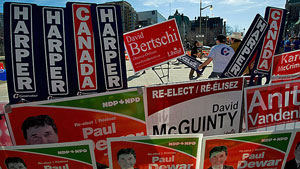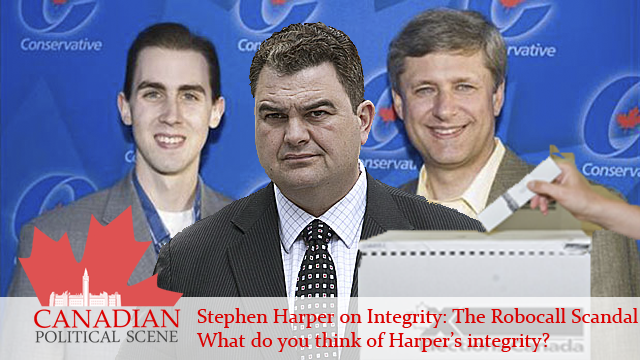Elections Canada confirmed yesterday that
there were 700 cases of irregularities in the last election and told Canadians not to jump to premature conclusions. A CBC investigation found a suspicious pattern linking who got the robocalls and who they supported.
CBC Investigation unveiled on The National
A CBC investigation asked voters who have gotten misleading robocalls how they got them and found a pattern. It turns out that when the Conservative Party asked voters if they would support them, a ‘no’ answer led to a misleading robocall. One woman used her caller ID to trace the number which after a Google search and phone call ended up to be from the Conservative Party. Another woman claims that the number of the robocall and the number of the Conservative recruiter was also the same.
If that wasn’t enough, former Conservative MP Inky Mark spoke out against his former party’s voter identification system, CMIS, yesterday claiming that only high ranking Conservatives could access and control the data and that he quit because he didn’t want to be controlled by Tory headquarters.
"If they get mad at you and don’t want you to access your own data, you’re done," Mark said.
"I figured that out right off the bat and said I don’t want to be under their control, so I just quit basically."
"I always knew that I had to do my own thing, because … they can control you 100 per cent, and that’s exactly what happened with CIMS."
The scandal first broke with complaints of phone calls from Elections Canada in Guelph, Ontario that informed voters that “due to an influx in voters, the polling station had been changed.” It turns out that Elections Canada would never make that call and as such the investigation began.
As more complaints filed in, and Canadians lost confidence in the results of the last election, media investigations found links to Racknine, an Alberta firm which is responsible for robocalls.
It turns out that CEO Matt Meier was linked to the Conservative Party.
The Tories then played the blame game trying to throw Guelph staffer Michael Sona under the bus but then pointed fingers at the Liberals when it backfired. Parliamentary Secretary Dean Del Mastro called the allegations “unsubstantiated smears” and as more and more Canadians joined the chorus, it appeared that it wasn’t so.
Elections Canada will be looking into the scandal amid calls for a public inquiry which to date have been ignored by the Conservative Government. In light of the findings by CBC, the Conservatives denied to comment and declined an interview with CBC.
Categories: Accountability, Conservative, Robocall Scandal, Scandal
On Monday, the longest campaign in modern history will come to a close and if current polls are any indication, Canada may be seeing a change in government after 9 years of Conservative rule under the leadership of Stephen Harper. Accountability was his calling card in 2006 and today, accountability may very well be one of the defining reasons for his departure.
On Monday, the longest campaign in modern history will come to a close and if current polls are any indication, Canada may be seeing a change in government after 9 years of Conservative rule under the leadership of Stephen Harper. Accountability was his calling card in 2006 and today, accountability may very well be one of the defining reasons for his departure.
In its length, in its cost and in its debate schedule, this election is unusual. The first and possibly only real debate of the campaign ended and here are the highlights of what happened.
In its length, in its cost and in its debate schedule, this election is unusual. The first and possibly only real debate of the campaign ended and here are the highlights of what happened.
Prime Minister Stephen Harper left Rideau Hall this morning with Governor General David Johnston’s approval to drop the writ and Canadians are now officially headed to the polls on October 19. For the first time since fixed election date legislation was brought in by the Conservative government, a fixed election date has been followed.
Prime Minister Stephen Harper left Rideau Hall this morning with Governor General David Johnston’s approval to drop the writ and Canadians are now officially headed to the polls on October 19. For the first time since fixed election date legislation was brought in by the Conservative government, a fixed election date has been followed.
Share this
article with your friends!
What do you think? Leave a comment!








